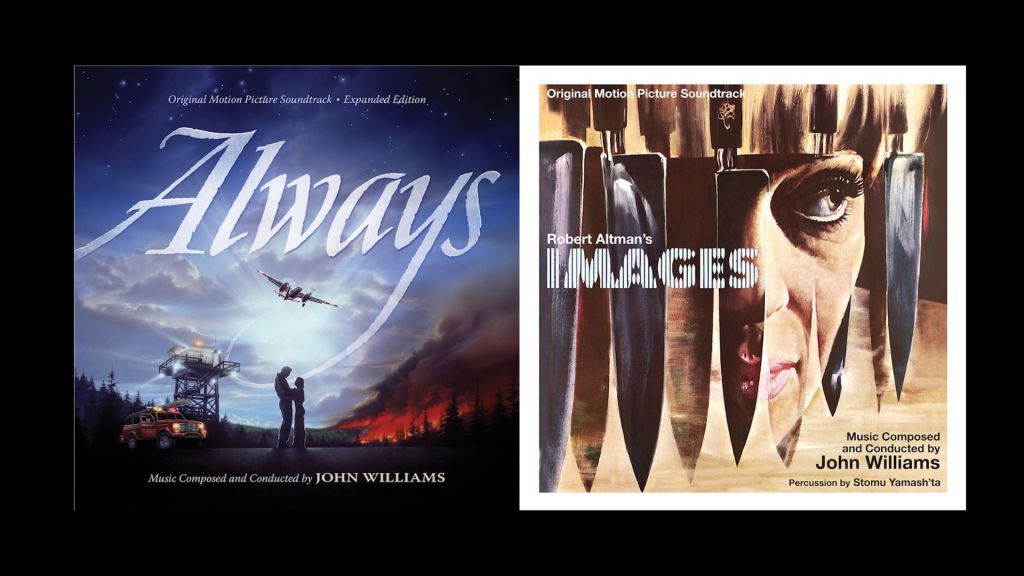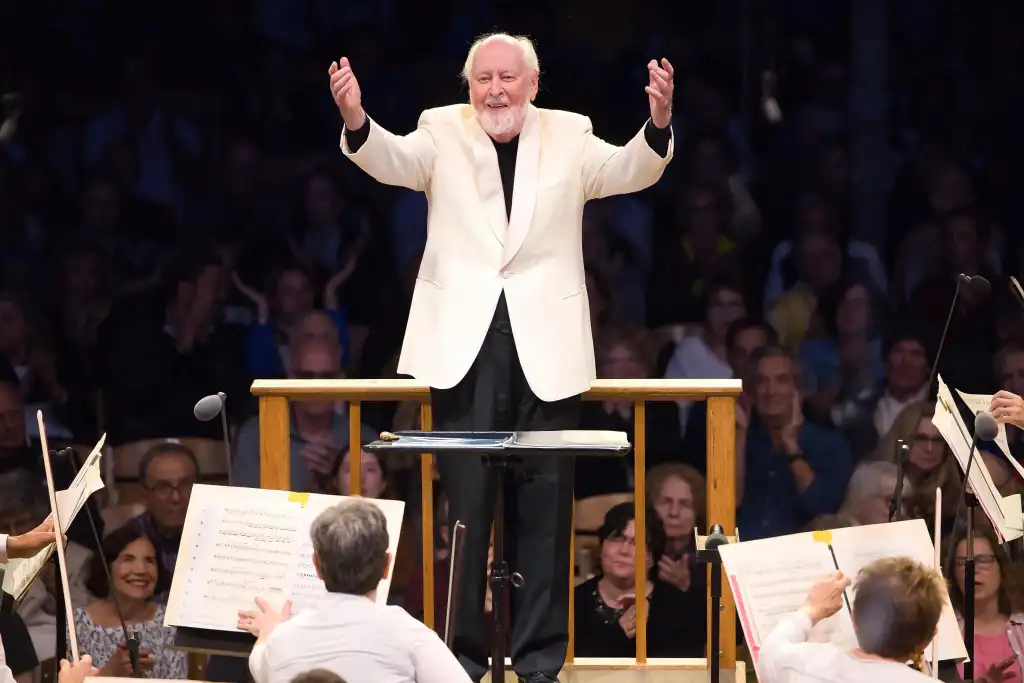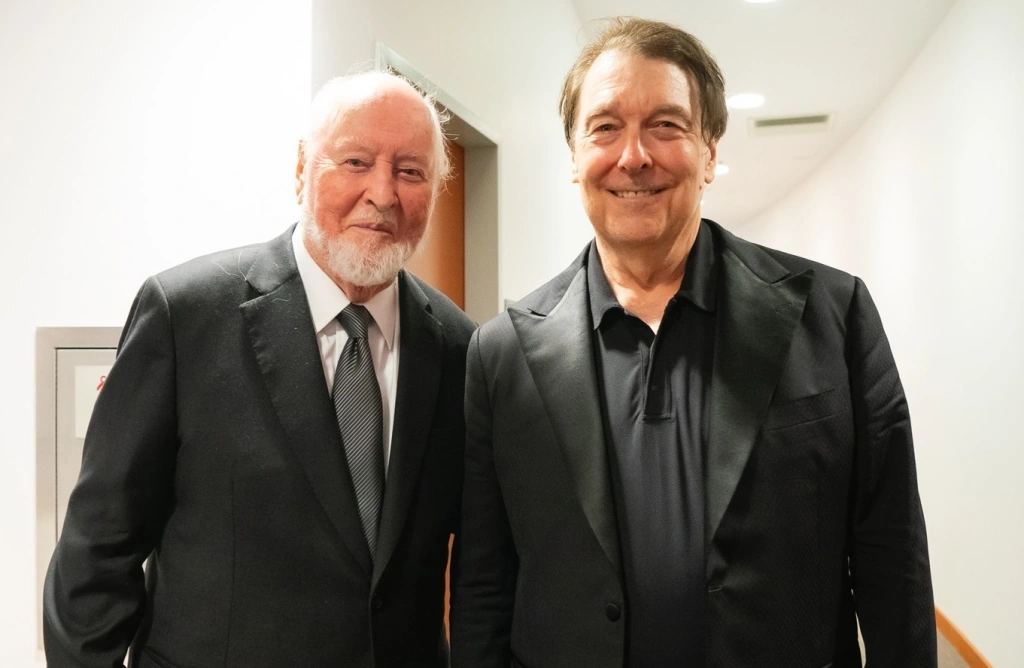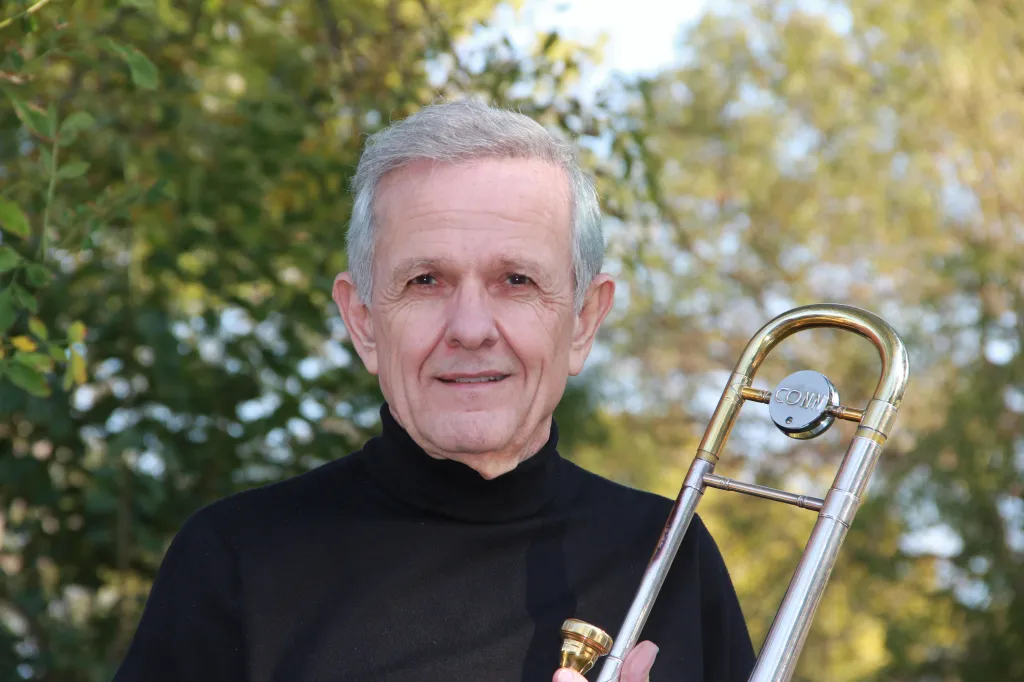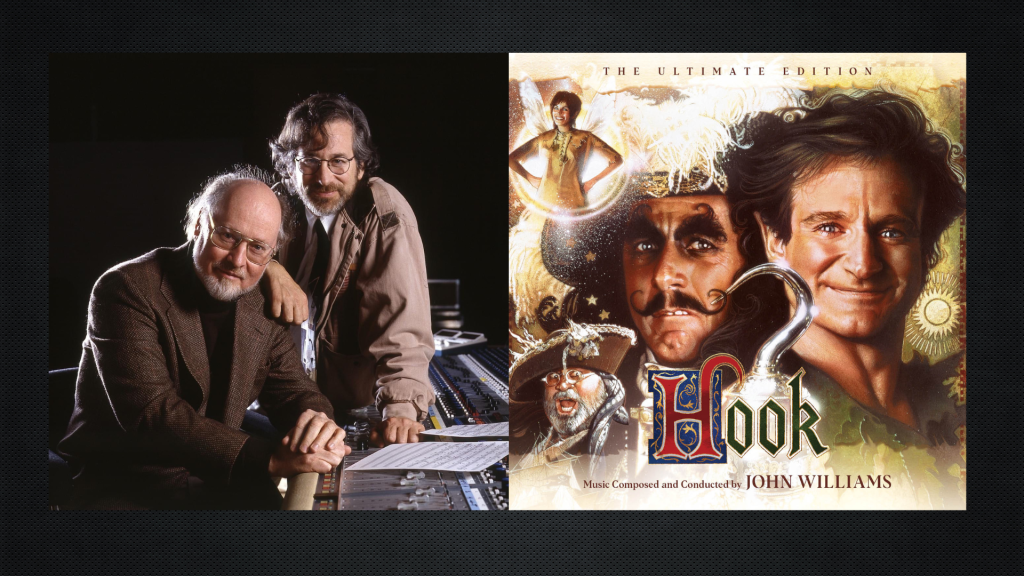Listen on
Podbean | Apple Podcasts | Spotify | Google Podcasts | TuneIn | Stitcher
As we reach the middle point of 2021, fans and admirers of John Williams have more than a reason to be happy and cheerful at the moment. A couple new CD releases present two of Maestro Williams’s most unique and varied scores of his extensive filmography: the first official commercial edition of the soundtrack for Robert Altman’s disturbing and fascinating cult classic Images (1972) and a newly expanded edition of the score for Steven Spielberg’s 1989 aviation drama Always. Both titles have been meticulously restored and remastered by soundtrack producer Mike Matessino, who continues to be the ultimate guardian for what he called the “future proofing” of John Williams’ invaluable musical legacy in terms of album releases.
Images is a film written and directed by Robert Altman starring Susannah York in the role of a young writer of children books suffering of severe schizophrenia. The story follows Cathryn and her disturbing descent into a world made of hallucinations and strange apparitions during her stay at a vacation home in the Irish countryside, up to the point where she cannot distinguish anymore reality from imagination and even the viewer at one point isn’t sure of who is the real person and who is the doppelgänger. The very interesting psychological premise of the film gave John Williams the opportunity to compose one of his most original and groundbreaking scores of his entire career.
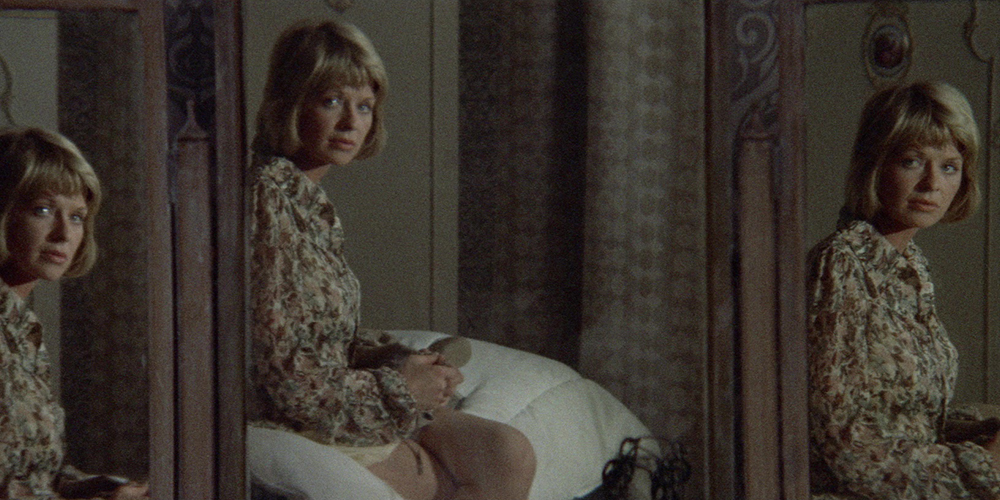
To accompany and depict Cathryn’s journey into schizophrenia, the composer creates a unique musical landscape made of two distinct characters: one defined by reassuring and familiar melodic material (mostly played by piano and strings) and another completely outlandish and unpredictable dominated by atonal, almost avant-garde musical effects and aleatoric writing. To give the score an even more specific character, Williams employed the unusual, almost alien textures of some of the “sound sculptures” of French artists François and Bernard Baschet. To perform on these unique instruments, the composer called upon Japanese percussionist Stomu Yamash’ta, who was the only person allowed by the Baschets to play the sculptures. Williams deployed all his knowledge of contemporary music, writing a score like none other in his vast and extensive career. If the world of Cathryn as the author of children books set in fantasy lands with unicorns and imaginary people is accompanied by lyrical yet haunting themes, the disturbing side of her personality is scored with terrifying and daring musical effects close to the sonic world of the avant-garde. In addition to the Baschet scupltures, Yamash’ta performs on a wide variety of percussion instruments like kabuki woodsticks and bowed marimba, but provides also some wild and scary vocal effects (the percussionist even got a credit in the film’s main title as “Sounds by Stomu Yamash’ta”). Williams performs piano and keyboards himself throughout the score, giving a singular and perhaps even more personal quality to the overall piece. The composer admitted later that the score felt like he was writing a percussion concerto with piano and strings, as it’s quoted in the liner notes of this new release.

The new edition, released by Quartet Records both on CD and vinyl, is the first official commercial release of the score approved by John Williams himself. So far Images has been available only as a “composer’s promo” LP that was distributed privately to members of the Academy of the Motion Pictures Arts and Sciences back in 1972 when the film was making the rounds for the annual award season (a vinyl rip of the promo was subsequently licensed and released on CD by Prometheus Records). Williams created that program for a soundtrack album that was supposed to be published at the time of the film’s release, featuring most of the pieces composed for the film and a strings-only arrangement of the main theme called “Blood Moon”. A newly discovered stereo master of this album was the source of this new edition from Quartet Records, which finally presents this unique John Williams score with unprecedented clarity and sonic detail, bringing to life all its intricate textures. The release also features thorough, in-depth liner notes penned by author and film music journalist Jon Burlingame chronicling the film’s production and the score’s aeshtetic qualities, with several quotes by Maestro Williams culled from various interviews Burlingame did with the composer over the years. Rounding out the presentation is also the original liner notes essay John Williams wrote for the planned soundtrack album and a handful of behind-the-scenes photos taken during the recording sessions, making this truly a not-to-be-missed release for any serious admirer of John Williams.
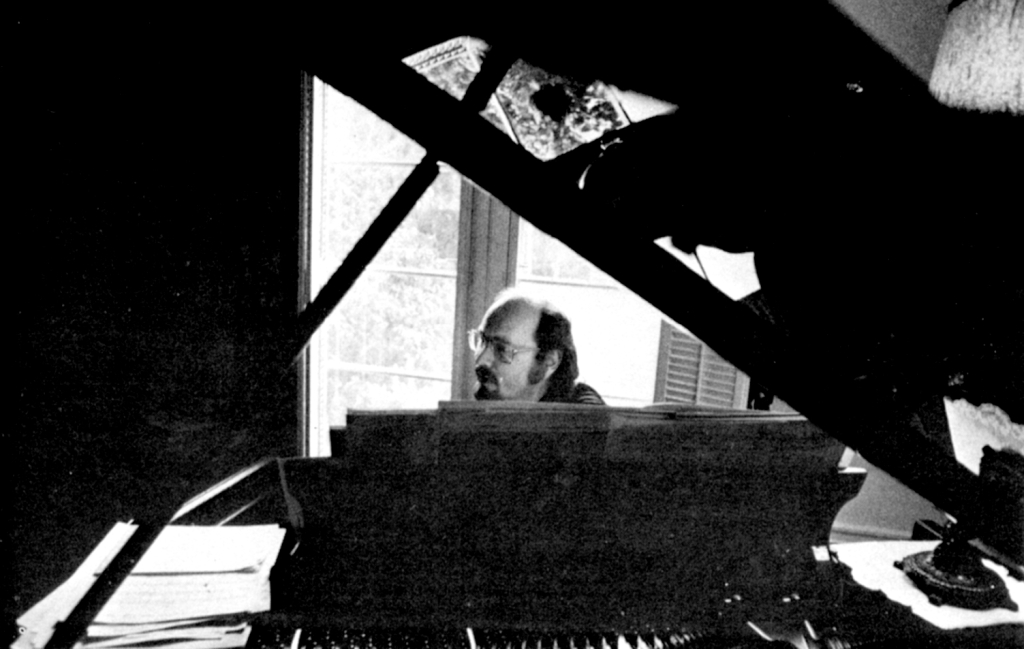
The subsequent title released in June is a newly expanded edition of the soundtrack for one of director Steven Spielberg‘s most underrated films: Always, starring Richard Dreyfuss, Holly Hunter and John Goodman in a remake of a classic Hollywood film from 1943, A Guy Named Joe, directed by Victor Fleming and starring Spencer Tracy, Irene Dunne and Van Johnson. This film has always been one of Spielberg’s declared all-time favourites and the director already tried to take the project off to fly since the early 1980s with Dreyfuss in the main role. As recounted in Matessino’s in-depth liner notes chronicling the film’s genesis and its place in the director’s filmography, Always presented a challenge for the director at that time, who was already moving into a new, more nuanced phase of his career, ready to tackle more mature projects. The film follows the same basic plotline of the original 1943 film (a seasoned airplane pilot suddenly dies during a flight operation and his soul is sent back to Earth to become a spiritual guide and trainer of a young promising airfigther, who then fall in love with the pilot’s widowed fiancée), but moves the setting from World War II to the world of aerial firefighting operation. In Spielberg’s version, the story offers him the chance to relish into some of his recurring stylistic motifs (aviation, WW2 planes, classic 1940s-styled romance, the “believing is seeing” theme), but in the end becomes an opportunity to explore intimate and deep feelings of love, loss and spiritual freedom–the importance of setting free the people you love and letting go the burden of the past to achieve a true spiritual epiphany. All this executed with the director’s trademark flair and technique, supported by Mikael Salomon’s richly textured cinematography, Michael Kahn’s poetic editing, Industrial Light & Magic’s seamless visual effects and John Williams’ touching score.
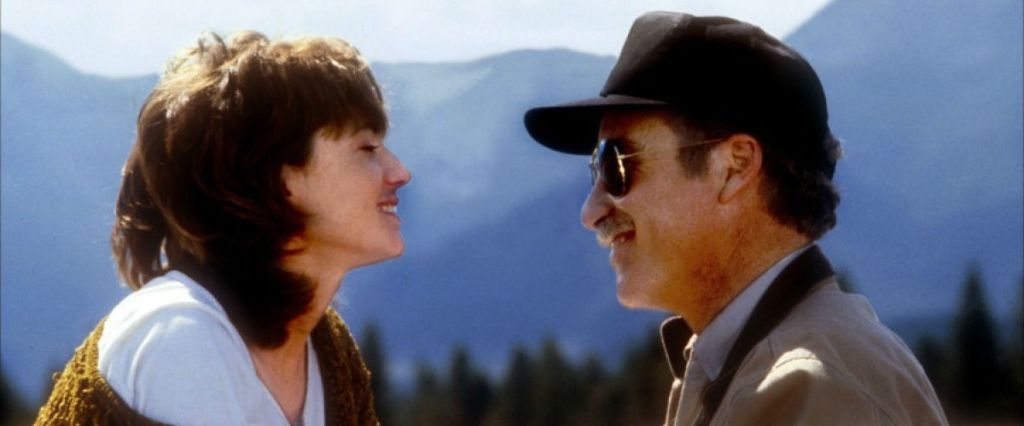
The score by John Williams was the 10th feature film collaboration between the directors and the composer and it was certainly a departure from the style and musical language usually associated with his works for Steven Spielberg. The film is very judiciously spotted, often with long stretches going on without score (the first cue occurs after 20 minutes) and sometimes even sharing space with a few songs used as source music, including the classic Jerome Kern tune “Smoke Gets In Your Eyes”, which becomes a key motif in the film itself. The composer sums up the love story at the core of the drama with a soaring, heart-rending theme that sounds like a musical stairway to heaven, both depicting the true love between the two protagonists and Pete’s ultimate fate. However, Williams’ score is characterized mostly by a very gentle, almost wistful tone, with very delicate electronic textures creating a dreamlike atmosphere. In those years, Williams started to explore more frequently atmospheric colours achieved with synthesizers and electronic instruments (usually programmed by keyboardists Ralph Grierson and Randy Kerber) in addition to his trademark orchestral language, and this film looked as the ideal platform to experiment more in that direction, as heard in the “heaven” sequences featuring the delightful Audrey Hepburn in her last role on screen. Some of those textures, already explored in The Accidental Tourist, would became even more prominent in such scores as Presumed Innocent, Far and Away, Jurassic Park and, several years later, in A.I. Artificial Intelligence.
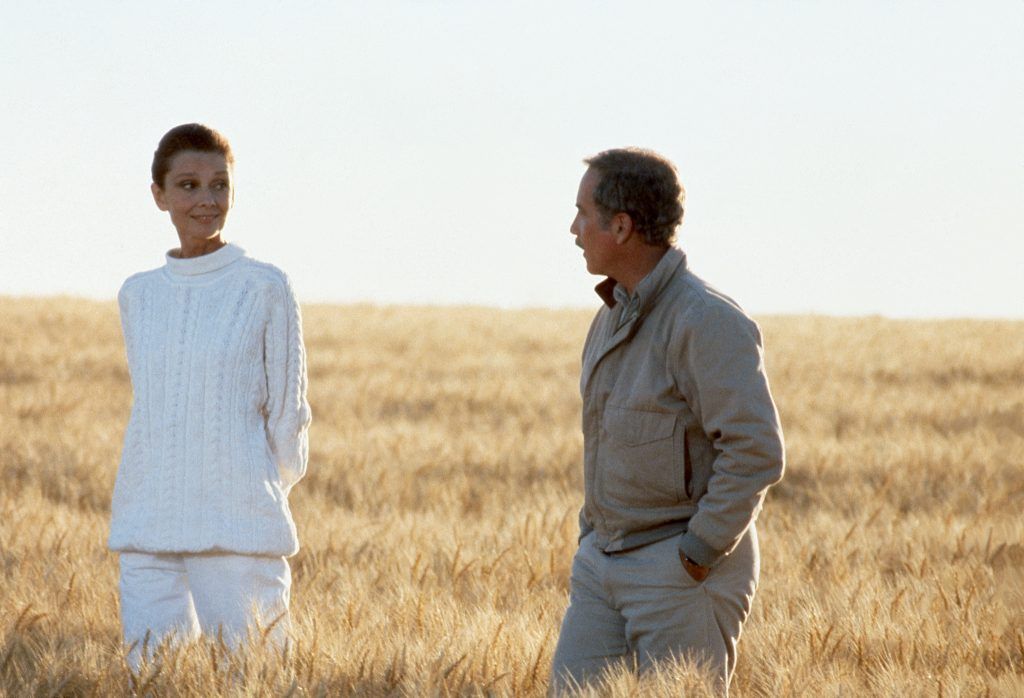
Always also features exquisite and very demanding solos for French Horn, performed by studio legend Jim Thatcher, who with this film inherited the chair as Principal Horn for John Williams from the legendary Vince DeRosa, a position he would keep until 2013. Thatcher’s incredible playing can be heard in the final sequences of the film and also during the end credits, during which Williams relishes in his beloved sumptuous symphonic vernacular. However, the score also offers a varied range of feelings, like the peppy scherzo accompanying the “follow me” chase on the tarmac, or the quasi-mysterious tones underscoring the sequence with the old timer. As in all Spielberg/Williams collaborations, the score fits the movie like a glove, enhancing and amplifying its main qualities, infusing soul into the story and its characters, this time with great discretion and showing the Maestro’s more intimate and quiet side.

The new edition released by La-La Land Records (approved by the composer and the director) expands the original soundtrack album released in 1990 by 30+ minutes, featuring the full score composed by John Williams and presenting several unreleased cues and some never-before-heard alternate cues, in which we can take a peek at the creative process of the director and the composer. Among them, the alternate version of the end credits will be of particular interest because of Williams’ beautiful arrangement of “Smoke Gets In Your Eyes”, showcasing the Maestro’s brilliance in arranging and adapting existing music. Mike Matessino restored and remastered the soundtrack from first-generation elements vaulted at Universal, bringing even more clarity and nuance to the already brilliant original recording and definitely “future proofing” another essential score in the Spielberg/Williams canon also through his expertly written liner notes and Jim Titus’ stupendous artwork.

In this new exclusive audio interview, Mike Matessino talks with The Legacy of John Williams about the restoration of these new editions of John Williams’ Images and Always, focusing on their respective places in Williams’ filmography, offering his own always deep thoughts about both movies and their scores, spotlighting his methodology and creative decisions in producing these new stellar albums that should belong in the soundtrack collection of any student of John Williams’ music. The discussion features various exclusive audio clips from both releases.
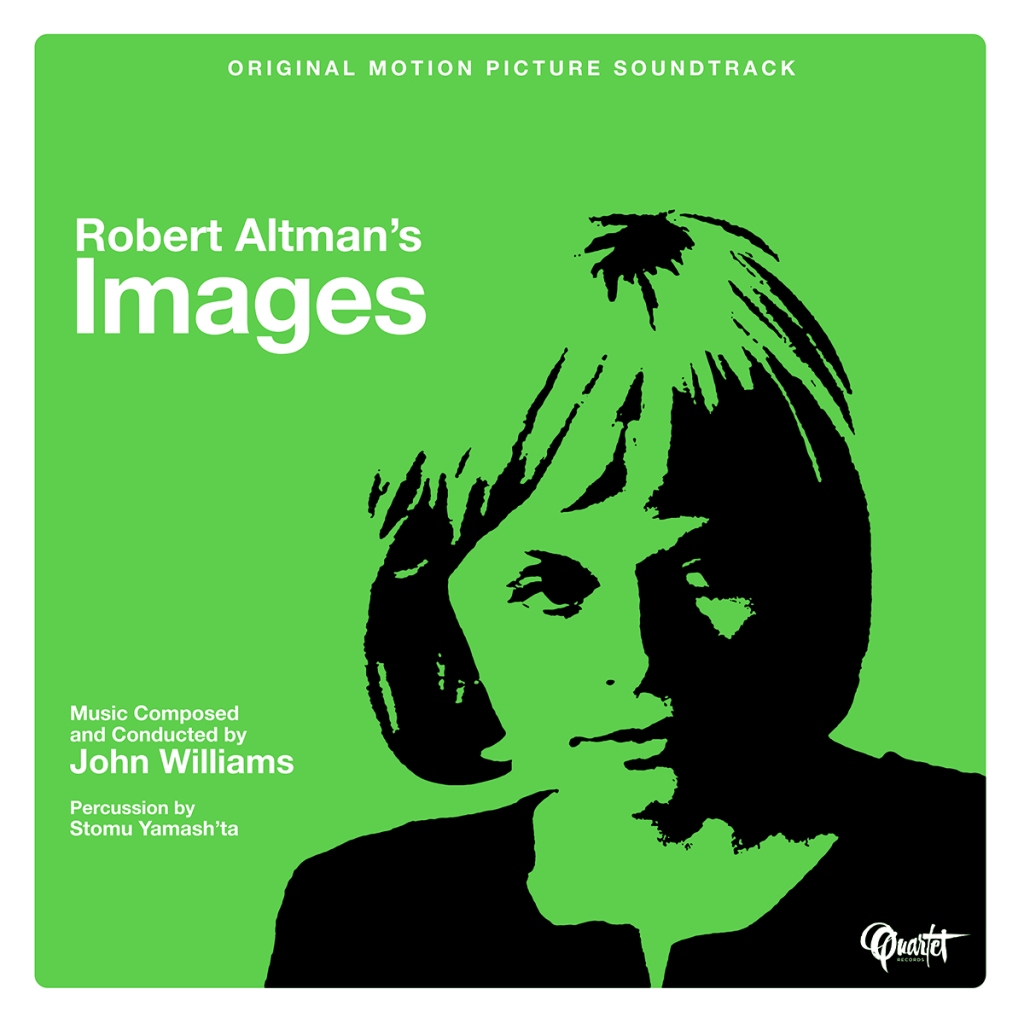
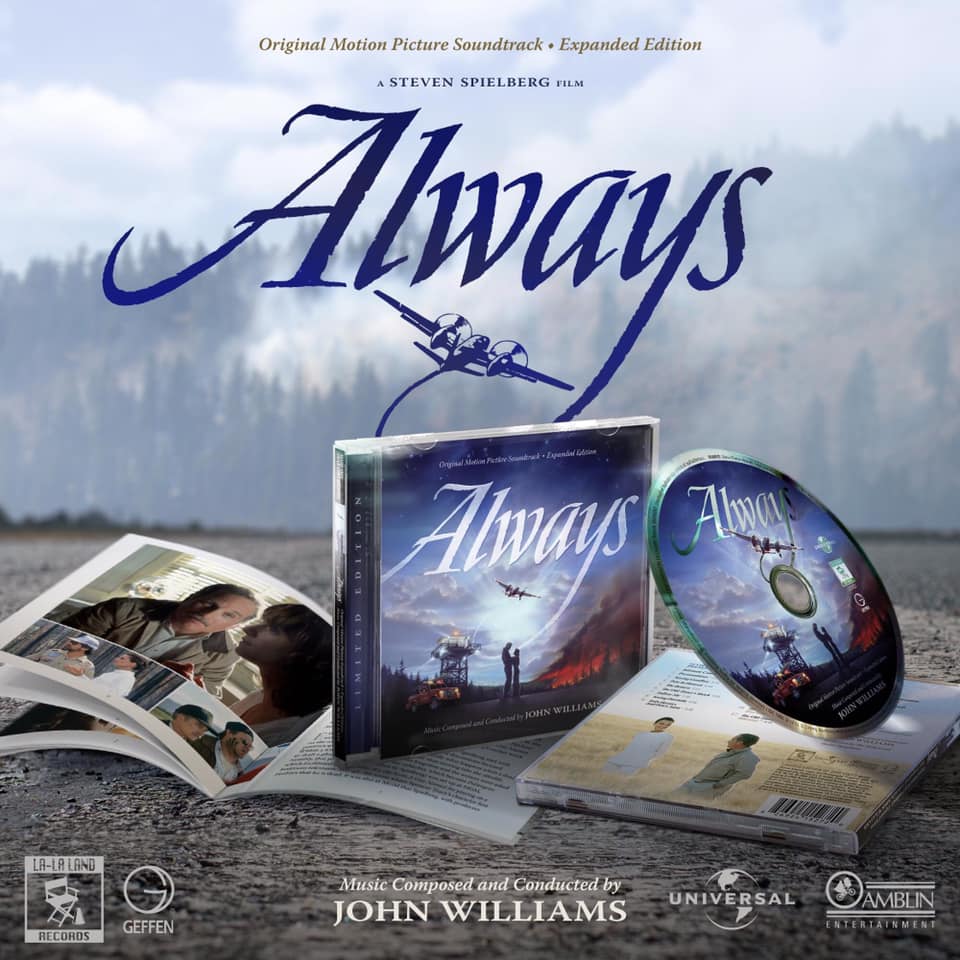
Special Thanks to Mike Matessino, José Benitez (Quartet Records), MV Gerhard and Matt Verboys (La-La Land Records)
Images – Remastered Original Motion Picture Soundtrack Limited Edition (2000 units)
https://quartetrecords.com/product/images
Always – Expanded Original Soundtrack Limited Edition (3500 units)
https://lalalandrecords.com/always-limited-edition/
